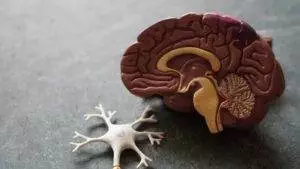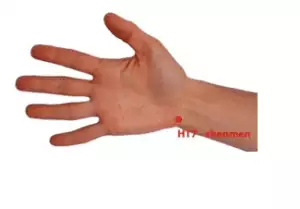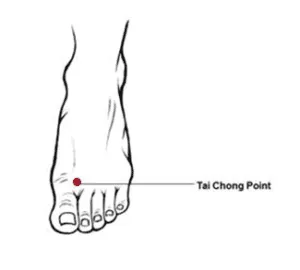-
 Art of Wellness Acupuncture & Traditional Chinese Medicine (TCM)11704 Wilshire Blvd, Suite 295, Los Angeles, CA, 90025
Art of Wellness Acupuncture & Traditional Chinese Medicine (TCM)11704 Wilshire Blvd, Suite 295, Los Angeles, CA, 90025
myartofwellness@gmail.com310-451-5522 Office Hours
MonClosedTue7:30 am --4 pmWed7:30 am --4 pmThu7:30 am -- 4 pmFri7:30 am -- 4 pmSat7:30 am -- 4 pmSunClosedOur office opens from Tuesdays to Saturdays 7:30 am to 4 pm, will be closed on Memorial day, Independent day, Labor day, Thanksgiving day, Christmas and New year.
-
Recent Posts
- How to Treat Dysautonomia With Acupuncture and TCM
- How to Treat Myofascial Pain Syndrome With Acupuncture and TCM
- How to Treat Costochondritis With Acupuncture and TCM
- How to Treat Ankylosing Spondylitis With Acupuncture and TCM
- How to Treat Gastroparesis With Acupuncture and TCM
- How To Treat Sleep Apnea With Acupuncture and TCM
- How To Treat Baker’s Cyst With Acupuncture and TCM
- How to Treat Sinusitis With Acupuncture and TCM
- How To Treat Sjogren’s Disease With Acupuncture and TCM
- How to Treat Raynaud’s Syndrome With Acupuncture and TCM
- How to Treat Autoimmune Disorders With Acupuncture and TCM
- Chinese New Year 2024 Year of the Dragon
- Sign up to receive news and updates and get my free report:“The Top 10 Reasons to Try Acupuncture”

Health
How To Treat ED With Acupuncture and TCM
By Qineng Tan, L.Ac., Ph.D. & Xiaomei Cai, L.Ac., Ph.D.
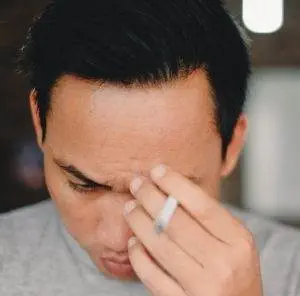
Let’s face it: most men have probably had trouble getting hard on occasion, but if it’s happening 50% of the time, or more often, then it may be a sign of men ED, or erectile dysfunction. ED refers to the inability to get or maintain an erection, making it difficult to have sexual intercourse. Acupuncture and TCM offer a natural solution for low sex drive and reproductive health problems, without over the counter ED pills.
In the past few decades, this condition, which used to be referred to as “impotence,” has come to be perceived as a men’s health issue or a men’s fitness issue that can be treated medically, rather than a personal problem. While it’s great that men can get help from doctors for this condition without embarrassment or shame, ED medications may not solve the problem for everyone. Stress, hormones, nutrition, exercise, emotions, and relationship dynamics all play a role in ED. ED can have a serious impact on a man’s quality of life, as it affects self-esteem, romantic relationships, and sperm count, and fertility.
It is estimated that about 30 million men in the U.S. experience erectile dysfunction (ED). By age 60, over 40% of men will probably experience ED. While ED drugs and over the counter ED pills help some men with ED symptoms, many men cannot use these medications because they interfere with others that are commonly used to treat heart disease. Acupuncture and TCM provide an alternative treatment for ED that can help men with this issue.
Top 10 Causes of ED
ED is a complex problem, which can involve both physical and mental components. A physical problem that causes a man to experience ED a few times may lead to emotional stress around sex and low sex drive, making the problem worse. Because the brain and hormones contribute so vitally to arousal and erection, sometimes depression, anxiety, or interpersonal feelings are the main cause of the issue. Some of the most common physical causes of ED include:
- Heart problems, high blood pressure, clogged arteries, high cholesterol
- Diabetes
- Obesity
- Use of certain prescription medications (antihypertensives, antidepressants)
- Neurological conditions, such as Parkinson’s disease or Multiple Sclerosis
- Alcoholism or excessive consumption of alcohol
- Smoking cigarettes/tobacco
- Prostate problems like BPH (enlarged prostate), or prostate cancer
- Lack of sleep, sleep disorders
- Low testosterone
Sometimes erectile dysfunction is the reason men discover that they have a heart condition or diabetes that they didn’t realize they had. When high cholesterol causes plaque to build up in the blood vessels, it’s not only the heart that is affected. Atherosclerosis (narrowing of the arteries) can also affect a man’s ability to get an erection by restricting blood flow to the penis. Inability to maintain an erection can be a sign that a man has hypertension.
What Is the Treatment for ED?
The most common medical treatment for men with ED are PDE-5 medications (like Viagra, Cialis, or Levitra), which work to dilate the blood vessels that supply blood to the penis. These ED drugs lower the blood pressure, which is why they cannot be used in conjunction with some other medications, including nitroglycerin or Imdur. If a man were to take both his ED pills and these medications, it could cause dangerously low blood pressure.
Some men experience side effects of taking these ED meds, including: headaches, blurred vision, dizziness, hot flushes, muscle pain, and diarrhea. In rare cases, men may have a painful erection that lasts longer than four hours (priapism), which can require medical treatment and/or cause permanent damage. If necessary, a doctor may numb the penis and use a needle to drain the blood that is trapped there, or use decongestant medications to help relieve the swelling. Other forms of therapy for ED include penile implants and penile injections. TCM acupuncture treatment for ED does not involve any needles inserted into the penis itself.
How Can Acupuncture Help ED?

According to TCM theory, ED is classified as a Jin Wei disorder and can follow one of a few patterns:
- Liver qi stagnation
- Blood stasis
- Kidney deficiency
TCM also acknowledges that stress, emotional and mental health disturbances are often a primary cause of ED, and seeks to incorporate counseling and awareness-building, both with the patient, and with the patient’s partner, if applicable. Sessions with a TCM provider usually involve plenty of discussion and feedback; patients feel heard and understood, which can go a long way towards relieving anxiety surrounding the ED or other sexual disorders.
TCM treatment for ED will include both acupuncture and herbs, which, combined, help to address the weakness or blockages that have developed around the liver and kidneys, strengthening the liver qi, relieving stagnation, and clearing dampness.
One study showed that, after a course of treatment including 3-5 acupuncture treatment sessions and daily herbal supplementation, almost half of the men reported satisfaction with the results.
Another study found that about two-thirds of the men who received TCM treatment reported feeling that they were “cure,” while the other third reported improved erections, but still felt that they needed more help. The group who received placebo treatment did not report improvement.
Top 5 Tips for ED Men’s Fitness

The desire to overcome ED and get your sex life back on track can be a great motivation to clean up your diet and get rid of habits you know have been holding you back from peak men’s health. Your acupuncturist can help you plan the best diet for men to help regulate hormones, reduce cholesterol, improve circulation, boost heart health and energy.
- Eliminate alcohol, tobacco, and other recreational drugs. You may feel like these substances help you to relax and get in the mood, but on a deeper physiological level, they are compounding the problem.
- Get more exercise. Ideally, balance cardio with some weight training. Losing fat and building muscle will help to balance the hormones and increase testosterone levels.
- Take care of your mental health and emotional well-being. Foster open and honest communication about ED with your partner. Acquaint yourself with men’s and women’s health issues, so that you can care for each other with empathy.
- Reduce stress. Prioritize a balanced, healthy lifestyle. Making time for yourself through regular exercise, meditation, and healing modalities like acupuncture can help improve your performance in all other areas of your life
- Get adequate sleep. When the body doesn’t get the deep rest it needs, it can lose all kinds of functionality.
Acupuncture Near Me for ED
ED is a sensitive men’s health issue. Knowing that it’s a common problem that affects lots of other men may help a little, but if ED is becoming a sexual problem that is negatively affecting your life and relationships, it’s worth it to seek out help for erectile dysfunction. If conventional medical treatment for ED isn’t working or isn’t an option, or if you want to take a more holistic approach that will help also boost your fertility and longevity, consider acupuncture treatment for ED.
*This article is for education from the perspective of Traditional Chinese Medicine only. The education provided by this article is not approved by FDA to diagnose, prevent, treat and cure human diseases. It should not stop you from consulting with your physician for your medical conditions. Traditional Chinese Medicine is based on Qi, which is an invisible force that usually cannot be observed by modern science. Because science focuses on testing ideas about the natural world with evidence obtained through observation, these aspects of acupuncture can’t be studied by science. Therefore acupuncture and Chinese herbs are often not supported by double-blind, randomized trials, and they are considered alternative medicine therapies in the United States.
How to Treat Diabetes With Acupuncture and TCM
By Qineng Tan, L.Ac., Ph.D. & Xiaomei Cai, L.Ac., Ph.D.
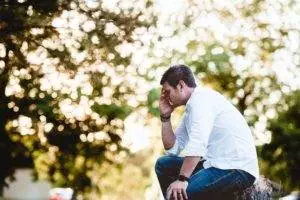
What is the best way to lose weight to manage diabetes? Can you keep glucose levels normal by finding the right foods to eat to lose weight? Keeping diabetes under good control requires a lot of daily effort and working with a team of health care professionals who care about you. Adding an acupuncture and TCM expert to your diabetes care team can help you manage your blood sugar and find the best diet for weight loss for you, personally.
Diabetes is one of the most prevalent health problems in the world today, and the number of people who have diabetes is growing dramatically. It is estimated that half of all people who have diabetes don’t realize they have it.
Diabetes affects people of all ages. Diabetes makes life difficult, creates complications during pregnancy (gestational diabetes), drastically increases the chances of developing other serious health problems like heart disease and stroke, and directly causes millions of deaths every year.
Diabetes is a condition in which there is something wrong with the way the body is producing and using the hormone insulin. Insulin’s job is to help the cells of the body make use of the sugar energy from the food we eat as it travels through the body in the bloodstream. When we don’t have enough insulin to do this job, blood sugar levels get too high, and the rest of the body’s cells aren’t getting the nutrients they need to function.
There are two types of diabetes. “Type 1 diabetes” used to be called “juvenile diabetes” because it is usually diagnosed during childhood. Type 1 diabetes can actually develop at any age, and it means that the pancreas doesn’t produce the hormone insulin the way it should. The exact cause of Type 1 diabetes isn’t fully understood, but it is thought to be a type of autoimmune dysfunction that harms pancreatic cells. Only 5-10% of people with diabetes have Type 1.
Type 2 Diabetes is far more common. One in ten Americans has Type 2 Diabetes. Type 2 diabetes is also caused by problems with insulin production by the pancreas. When a person has Type 2 diabetes, cells all over the body are not responding appropriately to insulin, so the pancreas works harder to create more and more insulin. This is called “insulin resistance.”
Type 2 Diabetes usually develops over the course of several years, and during that time, people may have what we now call “prediabetes.” If you are prediabetic, it means your blood sugar levels are high, but not high enough to be diagnosed as diabetes. This is a window of opportunity to prevent full-fledged diabetes from becoming a problem. Learning to track blood glucose levels, keep blood sugars low, practice the best exercise to lose weight, and maintain a balanced diet can go a long way towards helping to prevent and manage diabetes.
Acupuncture is becoming more and more widely recognized as an effective adjunct treatment to help in all aspects of diabetes care and management.
Top 10 Signs of Diabetes
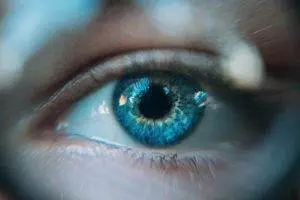
For most people, the symptoms of Type 2 diabetes are so subtle that they go unnoticed. People can have prediabetes or diabetes for years without knowing they have it. Early signs of diabetes include:
- Feeling tired and hungry all the time
- Feeling thirsty all the time
- Having to urinate frequently
- Dry, itchy skin and/or eyes
- Blurry vision
- Feeling light-headed or jittery
- Excessive sweating
- Cuts and sores are slow to heal
- Yeast infections
- Pain, tingling, or numbness in the legs and feet (diabetic neuropathy)
If blood sugar levels climb dangerously high, it is called hyperglycemia. Severe hyperglycemia might make a person feel extremely weak and thirsty, have a stomach ache or nausea, blurred vision, and feel very dizzy. People with diabetes may begin to have problems with memory or mild cognitive impairment.
Most of the time diabetes makes levels of blood glucose high, but sometimes people with diabetes will experience episodes of very low blood sugars, known as hypoglycemia. If a person takes too much of their diabetes medication that reduces blood sugar, or eats something that causes an imbalance, or does a lot of exercise, they might become hypoglycemic and need to take glucose tablets or eat some
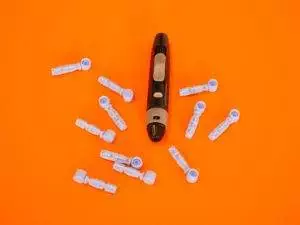
carbohydrate foods to bring the sugar levels back up. The common signs of a hypoglycemic attack include:
- Anxiety
- Confusion
- Clammy skin, sweating
- Feeling shaky or weak
- Hunger
- Light-headedness
- Tingling in the face
If you feel these symptoms–or see someone in this kind of distress–keep calm, check blood glucose level if possible, eat or drink some fast-absorbing carbohydrates, and wait a few minutes to see how the situation improves. In extreme cases, hypoglycemics can lose consciousness and need emergency medical treatment.
Doctors make a definitive diagnosis of diabetes by measuring A1C levels, testing fasting blood sugar, or administering an oral glucose tolerance test. These different types of glucose test give doctors a reading of how high a patient’s blood glucose levels are under various circumstances.
Treating Diabetes With Good Nutrition
Diabetes has to be carefully managed, primarily through making informed nutritional choices and getting enough exercise so as to maintain steady blood sugar levels. Many people will also need to take insulin in order to maintain normal glucose levels. Patients may be prescribed oral insulin, injectable insulin, or an automatic insulin pump. A primary care physician may be able to help with managing diabetes, but often people will also need to seek the advice of an endocrinologist and a nutritionist to help them learn how to manage their medications and carbohydrate intake appropriately. Often, patients will be advised to lose weight.
Nutrition is not considered separate from medicine in TCM; rather, facilitating a proper diet is one of the primary ways TCM addresses illness and disease. Acupuncture practitioners are highly trained in nutrition and can be instrumental in helping diabetes patients find the healthiest and best way to lose weight. We do not advocate fast weight loss or trendy diets. The fastest way to lose weight is probably not going to be the best way, certainly not in terms of being able to maintain a balanced eating plan long-term. Your acupuncturist can recommend the best foods to eat to lose weight while still feeling satisfied and keeping blood sugar levels in the normal range throughout the day.
TCM and Acupuncture for Diabetes
TCM has been treating “Xiao Ke,” or “wasting and thirsting disease,” for thousands of years. According to TCM philosophy, diabetes is the result of excess heat and dampness accumulating in the body. Acupuncture treatment is employed to stimulate better function of the pancreas.
Acupuncture has been shown to help improve many types of disease related to endocrine function. Research has indicated that acupuncture treatment can help to reduce fasting and after-eating blood sugar levels, increase insulin production, and reduce insulin resistance.
Combining acupuncture treatment and the use of Metformin has been shown to be more effective for increasing insulin sensitivity than Metformin alone.
At the same time that your acupuncture provider chooses acupuncture points and herbal formulae to improve glucose levels, he or she can also help treat the other symptoms of diabetes related to nerve problems, such as blurry vision and diabetic neuropathy.
How to Treat Diabetic Neuropathy with TCM and Acupuncture
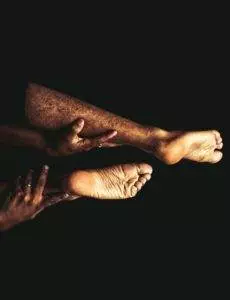
Over time, diabetes causes damage to nerve endings throughout the body. This can result in different kinds of neuropathy:
- Peripheral neuropathy – most often causes tingling, pain, and/or numbness in the hands and feet
- Autonomic neuropathy – compromises basic functions like the heart pumping blood, and the excretory system working due to the damage of nerves around the vital organs
- Proximal neuropathy – causes pain and numbness in the hip and buttocks area, usually just on one side of the body
- Focal neuropathy – nerve compression in a specific area of the body that causes tingling and weakness; examples are carpal tunnel syndrome, and cubital tunnel syndrome.
One study of diabetes patients with peripheral neuropathy showed that, after ten weeks of acupuncture treatment, the majority of them reported significant improvement in their symptoms and were able to cut down on pain medications.
Another research study showed over 95% improvement in neuropathy pain when acupuncture treatment was used in conjunction with typical medication (amitriptyline hydrochloride) to relieve pain and tingling.
Acupuncture treatment for neuropathy pain due to diabetes focuses primarily on clearing dampness that is blocking Qi from moving smoothly through the body. Chinese herbs are also instrumental for providing nutrients that people would not otherwise be able to get from their diet.
Top 5 Type 2 Diabetes Food List
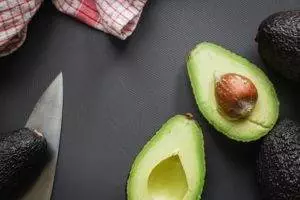
Getting blood sugar levels under control requires a full-time effort on the part of the patient. It can be difficult to make the necessary dietary changes to help reverse Type 2 Diabetes, but it can be done. The best way to lose weight for prediabetes diet control is to take it slow and steady, replacing high fat, high sugar foods with complex carbohydrates that take longer to be absorbed into the bloodstream. Your TCM practitioner will help you to make decisions for your specific needs, but here are some good food choices for a weight loss meal plan:
- High Omega-3 fatty acid fish – salmon, sardines, etc. High in protein and good fats to keep you feeling full, also helps reduce inflammation and risks for heart disease.
- Lots of leafy greens – full of Vitamin C and antioxidants, you can fill up on greens often without any negative effects to your blood sugar levels.
- Avocados – low in carbohydrates, high in fiber and healthy fats, adding avo to your salad will help you feel satisfied.
- Beans and Seeds – legumes and seeds like chia and flax are “super foods” because they provide the whole package: protein, fiber, complex carbohydrates and fats, plus minerals and B vitamins.
- Low fat Greek or plain yogurt – provides protein and is low in carbohydrates (as long as it has no added sugar), plus the natural probiotics can be beneficial. Pair with fresh berries for a healthy treat.
Acupuncture Near Me for Diabetes
An acupuncturist with expertise in helping people manage diabetes and lose weight can be a valuable member of your health care team. Whether you suspect you might have prediabetes, have just been diagnosed with diabetes, or have been struggling with diabetes for many years, TCM methods may help you get relief from painful neuropathy, lose weight safely, and reduce your dependence on diabetes medications. Diabetes can be controlled so that it doesn’t control you.
*This article is for education from the perspective of Traditional Chinese Medicine only. The education provided by this article is not approved by FDA to diagnose, prevent, treat and cure human diseases. It should not stop you from consulting with your physician for your medical conditions. Traditional Chinese Medicine is based on Qi, which is an invisible force that usually cannot be observed by modern science. Because science focuses on testing ideas about the natural world with evidence obtained through observation, these aspects of acupuncture can’t be studied by science. Therefore acupuncture and Chinese herbs are often not supported by double-blind, randomized trials, and they are considered alternative medicine therapies in the United States.
How To Prevent Miscarriage With Acupuncture and TCM
By Xiaomei Cai, L.Ac., Ph.D.
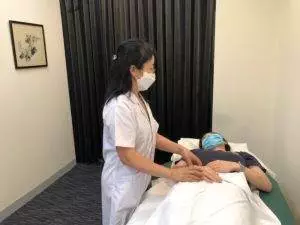
Miscarriage is the spontaneous loss of pregnancy. While it is not talked about much, it is very common; 10-20% of pregnancies end in early miscarriage. TCM and acupuncture methods, well-known for helping women with infertility issues, can be used successfully to prevent threatened miscarriage.
Sometimes called spontaneous abortion, miscarriage at 12 weeks or earlier is often due to chromosomal abnormalities in the developing fetus. In some cases, miscarriage or recurrent miscarriages are caused by the mother’s health condition.
While miscarriage is common, and very early miscarriage, sometimes called chemical pregnancy, may even go unnoticed, women who have experienced this should seek out care. The spontaneous ending of pregnancy is emotionally difficult no matter the circumstances, and hormone imbalances can cause other problems if left unaddressed. Acupuncture treatment and TCM herbal supplements can help support a full recovery and lay a healthy foundation for getting pregnant after miscarriage.
Signs and Symptoms of Miscarriage
While some bleeding in the first trimester is common (about 20% of women experience this), it can be an indication that the pregnancy is at risk.
Other signs of miscarriage include:
- Vaginal bleeding that is brownish or bright red
- Discharge that include clots
- Cramping or pain in the abdomen or lower back area, similar to menstrual cramps
- Contractions in the uterus that occur every 5-20 minutes, similar to labor pains
- Decrease in other early pregnancy symptoms, such as nausea and breast tenderness
In some cases, a miscarriage occurs without any signs of cramping or bleeding at all. Sometimes referred to as a missed miscarriage, missed abortion, or silent miscarriage, in this situation, a woman may not discover that she has miscarried until a doctor finds that there is no fetal heartbeat and checks via ultrasound and/or testing for HCG (pregnancy hormone) levels.
What Causes Miscarriage?
A positive pregnancy test usually can’t confirm a pregnancy until the third or fourth week, once implantation has occurred. It is estimated that miscarriage at 4 weeks or earlier, or when a fertilized egg has not successfully implanted, happens in up to 70% of conceptions. Miscarriage at 6 weeks or later is much less common; only about 5% of pregnancies end once this time when the heartbeat can be detected has passed.
Maternal age is one risk factor (20% of women over 35 might miscarry, while as many as 80% of pregnant women over 45 might miscarry). Chromosomal abnormalities in an embryo are more likely when a woman is older. The other most common reasons for a miscarriage to occur include:
- Hormonal imbalances – due to PCOS, low progesterone, diabetes, thyroid condition, etc.
- Thin or nutrient-poor endometrial lining
- Autoimmune issues
- Structural issues of the cervix or uterus, polyps, fibroid
- Exposure to toxins
- Smoking, alcohol, use of drugs
One of the primary reasons that a woman might miscarry during the second trimester is cervical insufficiency. In this case, there may be no prior symptoms, but the miscarriage begins with pressure or the water breaking. Once this weakness of the cervix has been discovered, doctors can treat this condition and protect subsequent pregnancies by making a “circling” stitch in the cervix at around the 12th week.
Recovering from a Miscarriage
The extent to which a woman may need medical intervention during miscarriage varies, depending on how advanced the pregnancy. If the pregnancy was still in the very early stages, and there is heavy bleeding, then the uterus may empty itself. However, if things have progressed further into the first trimester, and miscarriage at 12 weeks or thereabouts occurs, a woman may need medical attention to help expel all of the tissues from the uterus. This may be accomplished with medication (misoprostol, sometimes combined with mifepristone), taken orally or as a suppository, which will cause more cramping and the expulsion of the fetal and placental tissues. In other cases, it may be necessary for a doctor to perform a D & C (dilation and curettage), in which the tissues are surgically removed from the uterus.
Conventional medical treatment for miscarriage unfortunately does not offer much in the way of healing. The hormonal and emotional effects of a miscarriage can be profoundly upsetting. Feelings of grief, disappointment, and loss are very real, and if unresolved, can affect a woman’s mental and physical health going forward. Your acupuncture practitioner can provide holistic alternative care to help you recover from miscarriage. A program of acupuncture treatments, herbs, and caring support will focus on reestablishing a good flow of Qi and blood to the reproductive system while alleviating stress and anxiety. Balancing the hormones and emotions allows for the menstrual cycle to return to normal, and strengthens the organ systems so that subsequent pregnancy will start from a place of peak heath.
Can Acupuncture Help Prevent Miscarriage?
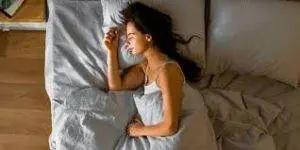
According to TCM theory, the vital energies–Jing (or essence), Qi (life force energy), Yin (female/cool energy) and Yang (male/warm energy)–must be balanced for optimal health, and this is especially true when a woman is preparing to bring a new life into the world. The quality of eggs and sperm depend on it. Naturally, as a woman ages, there will be some depletion of these energies, and this can be exacerbated by lifestyle habits: stress, overwork, diet, lack of sleep, etc.
Overall, TCM recognizes 4 differentiations of conditions that can lead to miscarriage:
- Kidney deficiency – Women with this type of deficiency may have experienced a late menarche (delayed first period), irregular cycles, anovulatory cycles (don’t always ovulate), long cycles. A woman might have been born with a kidney deficiency or it can develop due to exhaustion, heavy labor, or excessive sexual behaviors.
- Blood or Qi deficiency – This condition is related to the digestive system, when the stomach and/or spleen are not bringing enough nutrients to support and nourish the embryo.
- Excess Heat – If internal fire is too strong, it causes bleeding. This can cause the placenta to become detached and uterine contractions to begin, causing miscarriage.
- Injury – a fall or accident or excessive sexual activity during pregnancy can irritate the uterus, causing contractions.
Other causes could include: medications, antibiotics, food poisoning, or exposure to environmental toxins. Based on the presenting symptoms, an acupuncturist will determine which differentiation and create a treatment plan to address root causes. We can help to prevent miscarriage when there is spotting or cramping by calming the uterus to stop contractions and bleeding. Bed rest may be recommended, involving no exercise, no sexual activity, and no heavy labor.
The most effective preventive treatment happens pre-pregnancy. If a woman has one or two miscarriages or even three or more (habitual miscarriage), it is important that we take action to prevent problems before conception. Three months of treatment will prepare the body well to insure a full-term pregnancy. Ideally, a woman who is ready to get pregnant would seek acupuncture treatment and herbs to help strengthen all aspects of the reproductive systems for at least a few cycles before conceiving.
Acupuncture treatment can help prevent miscarriage by:
- Balancing hormones
- Treating PCOS
- Improving the quality of endometrial lining
- Calming contractions early in the pregnancy
- Improving blood flow and preventing clotting
- Regulating immune responses
- Reducing stress and anxiety
Top 5 Tips to Prevent Miscarriage

Self care is always important, but during pregnancy, it is especially vital to prioritize your health and wellness. The need to eat and rest appropriately cannot be overemphasized during this crucial time.
- Eat cooling foods – During pregnancy, women carry more heat in the body and often feel hot. It is best not to have anything too spicy; spicy food can encourage bleeding and trigger contractions. Cooling foods include: cucumbers, melons, citrus fruits, celery, leafy greens, soy and mung beans, eggs, millet, buckwheat, whole wheat.
- Avoid warming foods – Warming foods raise yang energy and body temperature. Be moderated from: deep fried food, coconut, leeks, onions, roasted walnuts, pistachios and pine nuts, and spices like cinnamon, cloves, pepper, ginger, garlic, mustard, chili pepper, or add more cooling food if there is warming food.
- Stay away from alcohol and coffee. Try chrysanthemum tea or peppermint tea as an alternative.
- Make sure you are getting the right balance of calcium and magnesium. Most people get more calcium than magnesium. Foods high in magnesium include spinach, beans, brown rice, and fish like halibut and salmon.
- If you experience bleeding or cramping, cease all activities, including manual labor, exercise and sex.
Acupuncture Near Me for Miscarriage Prevention
At Art of Wellness, our doctors have over 30 years of expertise in women’s healthcare through TCM and acupuncture. We specialize in helping women fulfill their dream of a healthy, full-term pregnancy from infertility treatment, to miscarriage prevention and complete pregnancy care. If you or someone you love is concerned about threatened miscarriage, please contact us to arrange an initial consultation and get started with a treatment plan right away.
We recommend that any woman who is seeking to start a family should begin partnering with her TCM practitioner before conceiving–ideally, for three months or menstrual cycles. This allows for any underlying health issues that may affect things to be addressed and gives the best chance for a full-term, healthy pregnancy.
*This article is for education from the perspective of Traditional Chinese Medicine only. The education provided by this article is not approved by FDA to diagnose, prevent, treat and cure human diseases. It should not stop you from consulting with your physician for your medical conditions. Traditional Chinese Medicine is based on Qi, which is an invisible force that usually cannot be observed by modern science. Because science focuses on testing ideas about the natural world with evidence obtained through observation, these aspects of acupuncture can’t be studied by science. Therefore acupuncture and Chinese herbs are often not supported by double-blind, randomized trials, and they are considered alternative medicine therapies in the United States.
What is Multiple Sclerosis and How to Manage MS with TCM & Acupuncture
Multiples Sclerosis is autoimmune disease, Traditional Chinese Medicine & Acupuncture are very helpful to improve these condition.
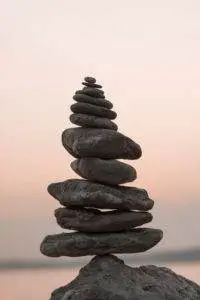
Dr.Tan’s Case and Testimony
Mr. M- a healthy 50-year old Caucasian gentleman—first visited my office Art of Wellness Acupuncture a few years ago. As an attorney, he had been working very hard to support his two daughters, who were both in college. About four months ago, the onset of serve lower back pain along with tingling in his left leg changed his life completely. He saw several doctors, had a number of x-rays and an MRI which revealed a moderate bulging disk on L4-L5. He tried different pain pills, NSAIDs, and underwent three months of physical therapy, none of which had helped. Recently, he had been experiencing numbness and weakness in his left leg, and was suffering from depression due to his inability to carry on with daily work and regular activities. When he talked to me, I noticed that he constantly rubbed his eyes. I asked if he felt any abnormalities in his vision. He answered yes, and that he had periodic occurrences of blurred vision. When I suggested that he showed me how he walks, I noticed his poor balance. He tended to fall on his left side because his left leg did not seem to follow his motion. Then I checked his knee and ankle reflex and found that they were excessively active. I was almost certain that the condition that made him suffer so much in the last few months was not a simple bulging disk or sciatica; it was a disorder of the central nervous system-Multiple Sclerosis. Immediately, referred him to a neurologist and suggested that he have a brain and cervical MRI. Two weeks later, he came back to my office with a confirmed diagnosis of Multiple Sclerosis.
Mr. M. is just one of 200 patients who are diagnosed with MS every week in the United States. There are about 400,000 people in the U.S. and 2.5 million patients who are suffering from this disease in the world.
Cause of MS
MS is an autoimmune disease in which infections or environmental changes can confuse the body’s defense system. Sometimes a foreign antigen mimics a group of the body’s own proteins. When the immune system response by mounting an attack against these foreign invaders, it inadvertently destroys the foreign antigen along with any similar antigens, including the body’s own tissues.
A recent study shows that a virus called adenovirus type 2 looks remarkably similar to the composition of the protective covering around the spinal cord and parts of the brain—the myelin sheath cells. The attacks of the immune system of this virus along with the mistaken attack on the myelin sheath is believed to be the ultimate cause of multiple sclerosis。
Common symptoms of MS
- numbness or tingling, usually in the leg or arm
- muscle weakness
- dizziness
- spasticity
- pain (moderate to severe)
- Ataxia
- Tremor
- Slurred speech
- Blurry, double vision or blindness
- bladder malfunction
- bowel dysfunction
- sexual dysfunction
- depression
- euphoria
- cognitive abnormalities
- fatigue
Most commonly, MS first manifests itself in a series of attacks followed by complete or partial remission as symptoms mysteriously lessen. These symptoms, however, will return later after a period of stability. This is called relapsing-remitting (RR) MS.
Treatment of MS
Unfortunately, there is no cure for MS yet. In Western Medicine, the treatment focuses mainly on decreasing the rate and severity of relapse. Beta interferons, anti-cancer drugs (to weaken the immune system), and steroids are commonly used for the treatment of MS. These medicines can reduce the number of MS lesions, delay the progression of the disease, and provide symptomatic relief for the patient.
In TCM, a condition called “Wei Syndrome” with symptoms similar to MS, was documented 2000 years ago in a classic Traditional Chinese Medicine book called Emperor Classic Medicine. Acupuncture and Traditional Chinese Medicine has been involved in the treatment ever since. MS patients who have tried acupuncture report improvement in pain, spasticity, numbness and tingling, fatigue, depression, anxiety, and bowl, bladder function.
Maintaining a healthy lifestyle is very important for the MS patient. This includes:
- Getting enough time to sleep and rest. Go to bed early
- Exercise regularly. Tai Chi and Yoga are very good to help patient relax, balance and with muscle strength
- Balanced diet, a lot of vegetables and enough protein from white meat
- Stress management
- Daily meditation and positive thinking
- Staying connected with friends and joining a support group
- How to reduce and prevent inflammation
Patient Story- Gilly
I was diagnosed with Relapsing Remitting MS in 1991 and I had no idea what a crazy, unpredictable journey I was about to embark on.
I woke up one morning, tried to get out of bed but my legs were like jello, I had no balance and had double vision.
I was given a spinal tap and MRI and lesions were detected on my brain & cervical spine.
When first diagnosed, my neurologist put me on one of the few FDA approved medicines for MS which don’t cure the disease, but delay the progression. For that I inject myself daily and have done so for 17 years
For the first 7 years after being diagnosed, I experienced relapses (flare up of symptoms) on average twice a year. The treatment for relapses was a 5 day course of steroids administered through IV, followed by 12 days of oral steroids.
The relapses affected my motor skills the most, especially walking but after a treatment of steroids, I was almost as good as new.
My friends suggested I try acupuncture. I was recommended to Dr Tan because he had studied MS in China. *
Dr Tan has been monumental in my life. He has given me treatments for a multitude of injuries I’ve suffered over the years due to frequent falls and is an expert in pain relief. He treats me for stress relief which contributes my general wellbeing. Dr Tan is very knowledgeable about Western medicine and MS treatments so I always ask his opinion.
I’ve been diagnosed with MS for 21 years and feel fortunate that Dr Tan has been treating me for a large part of that time. Although I partake in Western medicine, I know that Western medicine only treats the symptoms but Eastern medicine treats the cause of the symptoms.
My MS has progressed to the stage that I now use a wheelchair full time.
I go to acupuncture for preventative care. My immune system needs extra help especially during cold & flu season.
I am very aware that MS is a ‘designer’ disease, and no two people have the exact same symptoms. I would encourage anyone with MS to avoid stress, keep up a healthy immune system and try to stay positive and happy, because your emotional state affects your physical being.
How to Sleep Better with Acupuncture and TCM
By Qineng Tan, L.Ac., Ph.D.
Do you suffer from insomnia or do you have trouble falling asleep and staying asleep? Acupuncture and Traditional Chinese Medicine (TCM) offers many solutions on how to sleep better without sleeping aids. TCM stresses the importance of getting a good night sleep. Chinese medicine has tools such as; exercise, Chinese herbal medicine, acupuncture, and meditation all which can help you get a good sleep so you can function at the highest potential throughout the day. Below you will read about TCM and the history it provides in regards to sleep and the many tips that can help you get the best sleep tonight.
History of Sleep with TCM
Sleep is a part of the interplay of yin and yang: yang energy is dominant when we are awake and active, and yin energy rules sleep. Night is yin; daylight is yang. This is all in keeping with the holistic, universal nature of TCM (Traditional Chinese Medicine) theory. Our bodies are designed to work with the movements of the earth, sun, and moon. When a person experiences insomnia, either hard to fall asleep or wake up often then difficult to fall back to sleep, there is a lack of balance. The body is out of sync with its environment. The yang energy is taking over, or not interplaying with yin appropriately.
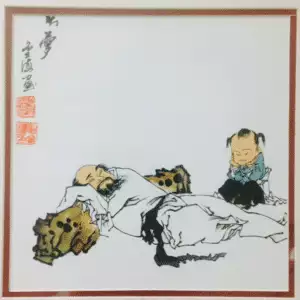
In TCM terminology, “Shen” is the spirit, the energy which controls our mental activities and thought. During sleep, Shen “hides” in the organs – predominantly the Heart and the Liver – resting, so that it can function with sharpness during our waking hours. Insomnia, in TCM, is often viewed, then, as a problem of the Heart system, or the Liver system. If one of these major organs is unable to “house” the Shen, then the Shen will wander restlessly, causing sleeplessness.
Protective Qi cycles through the body continuously, but it follows different paths along the meridians at different times of the day and night. During the day, protective Qi, which fights off pathogens, moves through the yang meridians, and during the night, it flows through the yin meridians. If you find yourself waking up at a particular hour in the middle of the night every night – or feeling sluggish at one particular time every day – it is probably related to some deficiency of Qi in that area.
Between the hours between 1:00 and 3:00 a.m. the liver meridian is actively supplying Qi to the liver system so that it can clean toxins from the blood. Then, between 3:00 and 5:00 a.m., the freshly cleaned blood and energy is being delivered to the organ systems. It is especially important to be sleeping soundly during that time. The liver does all the heavy lifting of cleaning and detoxifying the blood and therefore, the whole body. If the liver is stinted of its full rest and rejuvenation, night after night, we can be left feeling truly sick and tired.
Sleeplessness may be the central problem for some people; for others, it’s just a part of the big picture. Many people have gone so long without restful sleep that they have become used to it and just consider it their new “normal.” When you come in to Art of Wellness for a visit, our doctors will ask many questions to get a sense of what kind of sleep problems you’re having, including other symptoms that may be related to the same root issue.
- Having trouble falling asleep may be related to an excess condition of the liver and/or gall bladder.
- Waking easily and then having trouble falling back to sleep may point to a deficiency of the Heart Yin or too much internal heat.
- Nightmares may indicate a gall bladder meridian problem, while repetitive, literal dreams (about work, for example) might indicate a heart/spleen problem.
Sleep problems can be related to other conditions, such as depression, menopause in women, fibromyalgia, chronic fatigue syndrome, and cardiovascular disease.
How to Make Winter A Time of Rest and Renewal
Getting a good night sleep is always important, but in the Wintertime. Nature and our bodies are really asking us to rest more, and more deeply, than we do during other times of the year. This is a time for the body to store energy. If we go at a frantic pace, and behave the same way we do in the middle of summer, we will become depleted.
Unfortunately, our current culture does not necessarily support this idea. It seems we are asked to do more and be more than ever during the rush of the winter holiday season. It really is vital to prioritize “doing less” in order to preserve good health.
People with sleep problems seek tips for help. The practices in acupuncture and TCM help you to be calm. Visit the link and read some TCM tips for sleep.
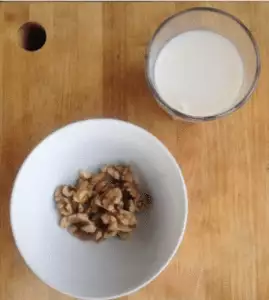
Top 20 Tips For Creating Calm so That You Can Get A Good Sleep
- Choose carefully how many social commitments you make. You don’t have to attend every gathering – only the ones that are meaningful to you. If it feels more like an obligation than fun, make a plan to stop in, extend your greetings, and then leave early. This way, you won’t overeat, drink too much, and you can still get to bed a reasonable hour
- Don’t exercise too vigorously close to bedtime. An evening walk, or gentle program of Tai Qi or yoga will help you work out excess energy with stimulating you further
- Deep breaking techniques: using you lower abdomen, inhale deeply. Hold it for about 5 seconds, and then exhale slowly through your mouth. Repeat ten times. Deep breathing exercises not only relax your mind, but they help to dispel negative Qi from the body before bed
- Create an oasis of calm in your bedroom, with good ventilation, restful colors and no devices. Set a time, half an hour to hour before going to bed, when you will discontinue watching TV or looking at your computer and phone. The light stimulus from the screen is not helpful for falling asleep. Reading a book, writing in a journal, coloring in a coloring book, are all activities that help you wind down for the night.
- Change your eating habits: many people wake up around 3 AM and find it difficult to fall back asleep. This may be cause by low blood sugar level due to the over activity for the adrenal gland. For a better sleep, try to balance your blood sugar level daily by eating small portions of food about every 3 hours and drinking a glass of warm, low fat milk or eating a handful of nuts—such as raw walnuts or almonds, before bedtime. It helps to balance your blood sugar. Waking up in the middle of the night can be caused by fluctuating insulin levels – the result of too much sugar or alcohol in the evening.
- Keep your feet warm by soaking them in hot water for 15-20 minutes before bedtime. Also, massaging the bottom of the feet can help to stimulate key kidney points. Give a good, fast rub to the center of your soles for a few minutes to warm them while getting into bed.
- Stimulating acupressure points just before bedtime can be helpful. Use your thumb or fingertip to apply moderate pressure and rotate clockwise for 2-3 minutes.
- Shen Men, called the “Spiritual gate” point, releases heart fire, excitement, anger, irritation and anxiety.
- Tai Chong, a liver point can help alleviate insomnia due to excessive heat or stagnation in the liver, which can cause feelings of depression, stress, sadness.
- Take off any constricting clothing (underwear), and wear loose, comfortable pajamas for bedtime.
- There is an old saying: “sleep like the crescent moon.” Sleeping in a fetal position on your right side puts your heart above your liver, which helps drain blood, giving the heart some relief and extra nourishment to the liver. It also helps food move through your digestive system properly.
- Keep away from interruptions: Turn off your phone after dinner or keep a note book by your bed. If you keep thinking about sometime important to do, write it down.
- Listen to calm and relaxing music
- Sleep and wake at the same time every day, yes that includes weekends. Do not stay in bed for too long even when you do not have to go to work. Your body needs to have a regular sleep-wake cycle in order to function at its maximum

Shen Men Point - Reduce the water temperature for baths and showers: when the water temperature is well about body temperature, your body heat increases. Then when you get out of the water, your body heat decreases. Try to avoid such fluctuation of the body temperature.

Tai Chong Point - Keep your bedroom simple and clean: limit the number of electronic devices such as TV’s, computers from your bed room
- Do not play video games at night
- Obey the 20-minute rule: if you do not successfully fall asleep in twenty minutes, get up and do something else until you feel tired and ready to sleep again.
- Waterfall Meditation. In this exercise, imagine yourself at the base of a waterfall. As you breathe in and out, picture the water gently raining down on you, trickling down each route until the tension inside you releases, allowing your entire body to enter a peaceful and relaxed state.
- Oneness Meditation. Just as in the Waterfall exercise, picture yourself standing beneath a waterfall. This time, however, instead of relaxing parts of your body one section at a time, allow your entire body to relax simultaneously. Let the image of the water wash away any stress or anxiety that burdens you.
If you have tried all of these things are still not sleeping well, please come see us to find the underlying problem. Acupuncture and herbs can help address and correct deeper issues that are affecting your ability to find rest and peace. If you find you are experiencing insomnia or any other sleep disturbance, seek out solutions. Left unaddressed, a sleep problem can become chronic and debilitating. Talk to us, so we can help you pinpoint and fix the problem with lifestyle adjustments, acupuncture treatments, and herbal formulae.
